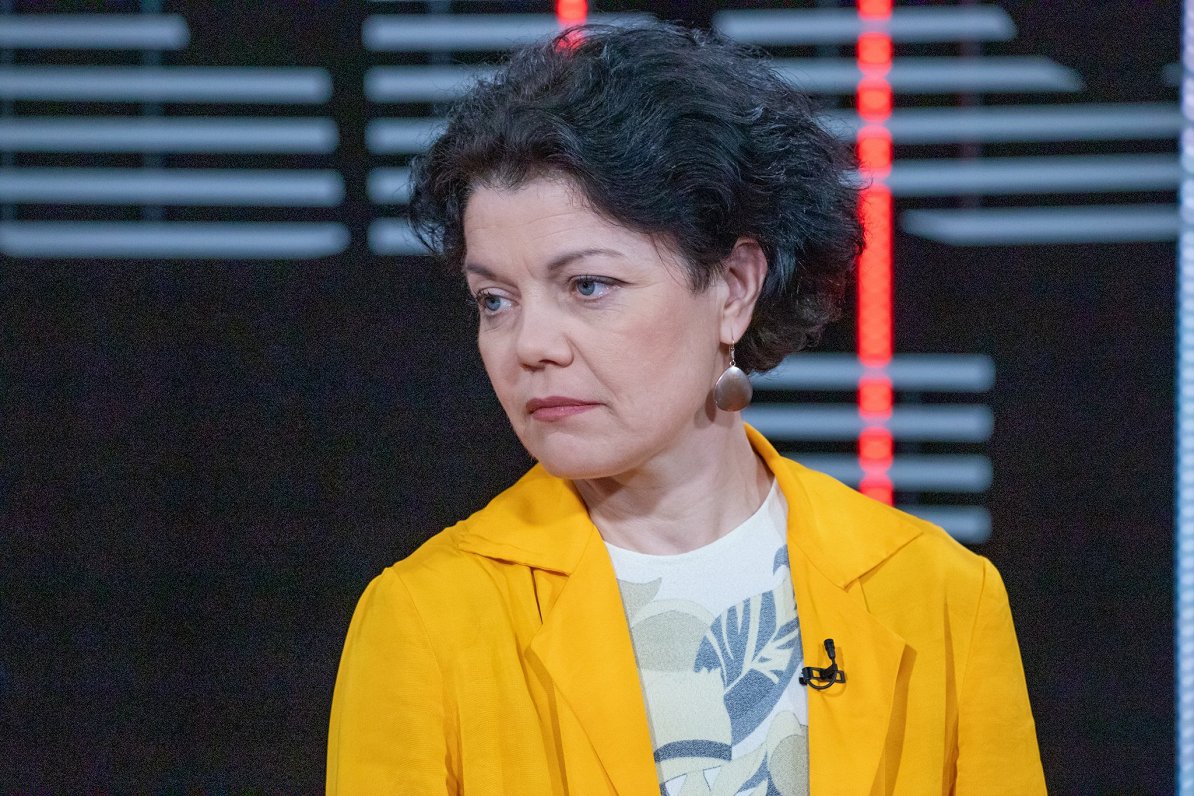While supporting Syrian refugees, she got herself into trouble with the law, which could mean two years in prison. According to the prosecutor and Ieva Raubiško, the charge was brought for organizing the illegal crossing of the country's external border by a group of persons.
Ieva Raubiško, an experienced project manager at "I Want to Help Refugees" ("Gribu palīdzēt bēgļiem, GPB"), is a social anthropologist who became involved in the aid movement as an activist almost 10 years ago when the war-torn Syrian refugee crisis began, and founded the social enterprise "Humosa komanda". Ieva is also a mother of a minor. Her efforts to support Syrians who fell victim to Belarus' organized hybrid war have led her to the court.
What is the situation in Raubishko's own account?
"Initially, a criminal case was initiated under Article 285 Part 2 for [human] movement. It was against me and Egils Grasmanis. It was discontinued, it was not continued against Grasmanis, but a new case was opened against me under Article 20 and Article 284(2) of the Criminal Law, namely for intentionally organizing an illegal border crossing for a group of persons," Raubiško explains.
She says that the group of seven people she and her colleague Grasmanis were involved in helping had even crossed the Latvian border with Belarus several times because they wanted to apply for asylum, but each time the border guards ordered them to return to Belarusian territory. Such groups of refugees, organized by Belarus and trying to enter Latvia in large numbers, were still a reality until the autumn of last year. Latvia opened its doors only to those whose health or lives were in danger, as well as to families with small children.
In the cold of winter, not everyone was provided with help, according to GPB. Raubiško's colleague Grasmani received a cry of despair from a group of seven Syrians while sitting at a party table on New Year's Eve in the early hours of 2023, Raubiško recalls.
"They were in a critical condition, one person from the group had fallen into a ditch and was completely drenched. Realizing that their health was in danger, Egils Grasmanis called the medical team. They [the refugees] were given first aid and even admitted to hospital, but then they were moved back to Belarusian territory," says Raubiško.
The Syrians' request for asylum was ignored by the authorities, Raubiško said.
The State Border Guard stresses, however, that such attempts to enter Latvia are illegal. Posters have also been put up in the border area warning people that the illegal stay of third-country nationals in the territory of Latvia is punishable by criminal penalties.
Guntis Pujāts, head of the State Border Guard, explained in an interview on Latvian Television's "Rīta panorama" program at the end of last year that 13,000 attempts to enter Latvia illegally had been prevented in 10 months, and it had also been discovered that border crossers from the Belarusian side were trying to smuggle in the bodies of people who may already be dead.
"The remains of two people have been found in Latvia and it is evident that they have been dragged. (...) Despite the difficult geopolitical situation, the border guards remain human. Whenever we see someone in need on the Belarusian side, we immediately report to the Belarusian services. Unfortunately, we observe that it often takes tens of hours to react, to arrive at the scene," said Pujāts.
The Syrian group that came to Raubiško's attention managed to obtain special status with the support of the European Court of Human Rights (ECtHR).
"On January 11 last year, the ECtHR issued a decision on interim measures: they could not be expelled from Latvian territory until February 8 . They had to be provided with food, water, temporary housing, and clothing. We decided to make sure that these people were actually admitted and given the humanitarian assistance they needed," says Raubiško.
The ECHR decision was sent to the border guards, but the group of Syrians concerned was still in a helpless state in the forest.
"We immediately called the emergency medical service and also called the border guards. They [the refugees] were on the verge of exhaustion, they actually collapsed in front of us, one man was shaking all the time. Two people were taken to hospital, the others were taken in by the border guards, we never saw them again. We were questioned by border guards about the administrative case, and later a criminal investigation was launched," Raubiško recalls.
After the pre-trial investigation, only Raubiško was charged. The State Border Guard, explaining that it is no longer the instigator of the proceedings, refused to comment to Latvian Radio, leaving it to the prosecutor's office. Irina Kudrjavtseva-Dilba, the prosecutor in the case, also refused to further explain the charges, as she is no longer the instigator of the proceedings, as the criminal case has already been transferred to the court.
"There will be a hearing on the qualification of the offense. Ieva Raubiško was charged with organizing the intentional illegal crossing of the external border of the country by a group of persons," said the prosecutor.
Raubiško's case has also come to the attention of the Latvian Center for Human Rights. Edgars Oļševskis, a lawyer at the Center, said that he did not have access to the case files, but would certainly follow the proceedings.
"The move to persecute human rights activists cannot end well. This is not a characteristic of lawful states but of totalitarian and authoritarian ones. That is why we highlight every such case. Here, it may also be necessary to ask the European Court of Justice to intervene," Oļševskis said.
Meanwhile, of the five Syrian refugees who arrived at the Mucenieki center after Raubiško and Grasmanis became involved and were allowed to start the asylum procedure, one has indeed been granted asylum, one is still under consideration and three have already left Latvia.



























